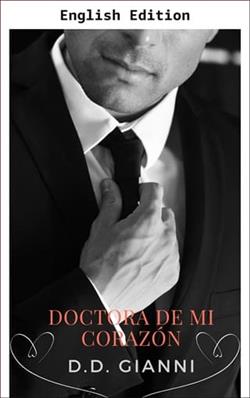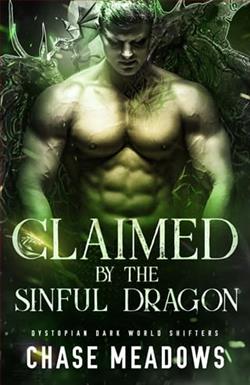Page 12 of Keeping Kate
Her heart pounded, her knees nearly buckled. She turned her head away stubbornly.
“So be it,” he said. “Remember that I offered mercy.” He let go of her so suddenly that she rocked with it. She watched his boots disappear from sight, heard the iron door clang open and shut, heard his furious tread as he walked away.
She flexed her cold hands, her arms feeling nearly deadened. She curled her toes, freezing and damp in her stockings. Her shoes had been taken earlier, along with her plaid shawl. All she wore was the shabby green dress, the simple stays, and chemise that she had worn as the laundress.
Her silver chain and pendant—one of the fairy crystals of Duncrieff—had been taken from her. That was a distressing loss. Her father had plucked the crystal from the rim of the golden Fairy Cup at Duncrieff Castle for her to wear. Her sister, Sophie, had been given one too, a rare privilege for both. Clan tradition held that each child found to possess the fairy gift—some extraordinary ability passed down from an ancient ancestress born of the fairy folk—was given a crystal to wear always. Without the protection of that little stone, Kate knew her inborn gift could disappear altogether. And the loss of the crystal could hurt the clan.
Throughout generations, MacCarran blood held a trace of fairy in it, diluted over centuries. The magic appeared more rarely in descendants, but still occurred. Kate and Sophie had inherited talents that could bring luck or disaster to the whole clan.
Kate sighed, lowering her head. Without her little crystal, she felt defenseless and frightened. This time, she thought, Katie Hell would not so easily charm her way free.
“How long hasshe been standing there?” Alec demanded, gazing into the dungeon cell. “And who the devil ordered it?”
“Been there since night, sir,” the sergeant answered. “Colonel Grant’s orders.”
Alec swore under his breath. He should have come earlier, but Wade’s damned paperwork and requests had delayed him.
The girl in the dark cell was a wisp, a shadow of the girl he had seen before. He frowned, watching her through the barred door. Chains and fetters held her upright, as if she had no strength of her own. She was shoeless and unkempt in the drab gown, and her hair cascaded in loose, dingy waves that ought to be the ripe gold of sunset.
She wavered a little, tried to straighten. Her weakness was obvious, but Alec saw the steely will inside. The sight was heart-rending.
Guilt had tormented him ever since he had called the guards to his tent after discovering the girl going through his papers. When she had been whisked away for interrogation, he had not been able to follow. As soon as he was free, he had ridden northward in a grim fury. Even his cousin had complained of the pace, and Jack MacDonald enjoyed a little madness now and then. Alec, by nature, did not.
He blew out a weary, unsettled sigh now. She appeared frail and harmless. Had he made a terrible error in arresting her? How could this be the wanton described by so many officers, the virago of the broadsheet? Yet this fragile, determined waif was the laundress, the innocent widow, the seductress, the notorious Katie Hell, and the dazzling young woman at the king’s court, all at once. How—and why?
Some called it fairy magic, he thought wryly, but that was nonsense. The girl donned disguises, added potions to drinks, pilfered documents. She had laid in his bed with him. She was a schemer, a spy, a hellion, worse. Nothing fantastical about that.
Yet he remembered the passion he had felt for her, the comfort of holding her, the delicious kisses, the tantalizing feel of her. If she was a harlot or even experienced at such doings, he would have known. Yet he felt sure that an innocent had been in his arms. Even in his foggy state, he had realized it, had pushed away from her.
And he was damned sure she was no fairy princess.
None of it made sense. He was bewildered. Whoever she was, she had a changeable nature and a host of secrets, and he meant to discover who she was and what she was about—and he wanted to do that before Grant got the information out of her or killed her in the trying.
Seeing her like this, he felt an angry sense of protectiveness, part compassion and something deeper that he could not define.
The girl was driving him a little mad. He did not like that. He preferred life to be orderly, nicely predictable. At least, he tried to convince himself of that. This girl’s unpredictability intrigued and challenged him.
He turned. A guard sat on a wooden stool, ignoring him and the other prisoners. In the cell next to the girl’s, two men reclined in shadows, one fellow in breeches and shabby coat, the other, a large and unkempt Highlander, in plaid. Both slept.
“Has she been interrogated?” Alec asked the guard.
“Aye, but so far she refuses to be helpful, so Colonel Grant says she is to stand there until she changes her mind.” The sergeant struck a match and lit a pipe. The tobacco glowed and pungent smoke filled the air.
Alec frowned, remembering Grant’s testimony about his meeting with Katie Hell. Alec had met Grant before and had scant respect for him. The colonel was harsh, critical, temperamental, and never forgot a grudge, he heard.
“Sergeant, the girl must be permitted to rest and allowed basic courtesies.”
“Aye sir, you and I agree. But Grant says she must answer questions first. She is keeping Jacobite secrets and we need strict measures. Will you be interviewing her, sir?”
Alec glanced toward Katie again. She swayed, jerked upright. Then she turned her head and saw him. At first, a dull glance—then recognition and a spark of anger showed.
“I will speak with her,” Alec decided. “Open the door.” The soldier complied, and as the door grated open, Alec entered the cell and walked toward her.
She stared at his feet through a skein of tangled hair.
“Kate,” he said. “How are you faring?” When she did not answer, Alec sighed. “You will need to give us information to get out of this kerfuffle. Tell me your family name. We will start there, lass.” He spoke quietly, watching her.
She let out a soft, disdainful huff.















